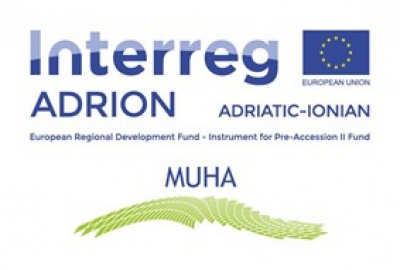Period: March 2020 – August 2022 (30 months)
Total budget: EUR 2,396,858.00
ERDF contribution: EUR 1,738,341.80
IPAII contribution: EUR 298,987.50
Partners: The consortium is led by CNR (IRSA - Water Research Institute and IRPI - Research Institute for Geo-Hydrological Protection) with the collaboration of other 9 partners:
- University of Ljubljana (Slovenia);
- Jaroslav Černi Water Institute (Serbia);;
- Croatian Geological Survey (Croatia);
- Water utility of Istria for the production and distribution of water (Croatia);
- Municipality of Kamnik (Slovenia);
- University of Thessaly-Special Account Funds for Research (Greece);
- Public utility “VODOVOD I KANALIZACIJA“ NIKŠIĆ (Montenegro);
- Decentralized administration of Macedonia-Thrace/Water Department of East Macedonia and Thrace (Greece);
- Civil Protection Department of the Italian Presidency of the Council of Ministers (Italy).
The MUHA project is building upon the idea to address disaster management cycle consisting of preparedness-response-mitigation-rebuild components in the ADRION countries. It will connect the observed and modelled hazards and risks related to the integrated water cycle, by effectively join them with the existing and improved coping capacity developed by national, bilateral and EU Civil Protection Mechanisms, following the rationale defined by the Sendai framework.
Four water related risks will be faced: accidental pollution, floods, droughts, failure of critical infrastructure due to earthquake. It should be nevertheless recognized that we are addressing one single complex water system with several components. This single system shall be followed by the current status analysis and model of anticipated scenarios, where single region or municipality could be affected in relatively short period by several water hazard scenarios. This also results in complex disaster response mechanisms. Project rationale is recognizing the necessity to join different aspects of the water cycle in an improved response system, which will integrate functions of the incident command system, related also by Common Alerting Protocols, thus enabling efficient transnational response. The interconnected role of water utilities and civil protection mechanisms is crucial and currently not sufficiently considered. While the involved countries have already developed different planning and response mechanisms on different levels, MUHA is expected to produce a long-term robust networking within the EUSAIR, based on a joint transnational management to address the common challenges of water-related response to hazard. Moreover, the definition of common action plan, methods and tools to be implemented in pilot actions are expected to improve response time and effectiveness of the coping capacity developed by national, bilateral and EU Civil Protection mechanisms.
As a result, MUHA project will increase resilience of the water supply in addressed countries and directly in the addressed pilot action zones. This will be performed by a common understanding among transnational network of ADRION Partner States/organisations of existing status of water supply reliability/risks, and the international and EU framework addressing this field (Drinking Water Directive, EN15975-2).
Project Manager: Emanuele Romano
Financial Manager: Andrea Sbrilli

